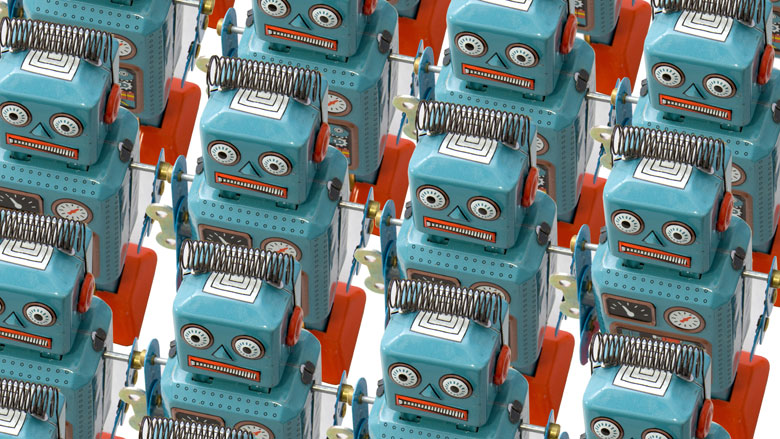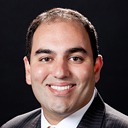The uniformity of Mass Society
By Glen A. Sproviero | May 26, 2016, 10:09 EDT
 (Adobe stock photo)
(Adobe stock photo) Bigger is better, or so goes the refrain. Whether it is mega grocery stores, super movie theatres, gigantic airplanes and ships, towering skyscrapers, mammoth sport utility vehicles, or limitless storage space on an iCloud, when something is colossal, we take interest.
In business, firms and banks strive to grow larger and economically omnipotent, manufacturers angle to gain near-total control over the production of goods and materials, and labor unions continue to exert monopolistic power over the labor force.
With respect to politics, the trend is identical. Over the last century, political decision-making has become less local and more centralized at the national and even international level.
In the United States, pressure to allow the federal government to regulate matters traditionally reserved for states and municipalities has resulted in a bloated regulatory system and a centralized government that cares little for local needs and responds poorly to local matters.
Because Mass Man has no traditions of his own, he asserts himself with vigor against the great traditions which have anchored civil society and of which he is both an unwitting and ungrateful beneficiary.
While this centralizing inclination in politics and business encounters little opposition in our culture of unlimited material progress and technological advancement, the danger of mankind losing its identity – of individuals losing their dignity to an amorphous mass society fueled by everything colossal – is terrifyingly real. The era of Mass Man and Mass Society is arriving, if it is not already here, and its consequences cannot be overstated.
Who is Mass Man and why is he a danger? A brief description is appropriate.
First, Mass Man is a conformist without a personality. He lacks a connection with the past, and as a consequence, does not feel a duty to those who have come before him or to the rising generation that will follow.
Because Mass Man has no traditions of his own, he asserts himself with vigor against the great traditions which have anchored civil society and of which he is both an unwitting and ungrateful beneficiary. Unhappy with the state of the world, but unable to understand the roots of his discontent, Mass Man searches for meaning within himself alone and with utter disregard for the culture of which he is a part. He is spiritually and intellectually isolated, and as a result, is a radical who seeks to overthrow the existing social order without regard for the consequences to himself or his neighbors.
Second, Mass Man is bored and boring. His life is consumed by technology and its attendant demands. He is obsessed with social media, reality television, and pop-culture fads. His life is ordered in a manner to resist moral judgments and to embrace the functional utilitarianism of cyber-technology. He is a citizen of this world, but spends much time in the artificial reality of cyberspace.
(Mass Man) embraces trendy fads and political causes with self-congratulatory enthusiasm: he is at once an environmentalist, a wine connoisseur, an intellectual, and a humanitarian.
Moreover, his economic preferences are dictated by a combination of efficiency and sentimental humanitarianism, while his political preferences are dictated by gut-reactions, emotion, and peer-pressure. He is the living, breathing version of his iPhone and laptop: he responds to the input of his programmers but cannot comprehend anything that is not fed to him by the news media or cable television or late night comedy.
Third, Mass Man lacks originality. He is, in most respects, a conformist. He does not want to stand out from the herd, as he fears that any difference of opinion he may express with respect to dominant trends is certain to cost him the esteem of his friends, colleagues, and community. He embraces trendy fads and political causes with self-congratulatory enthusiasm: he is at once an environmentalist, a wine connoisseur, an intellectual, and a humanitarian. He cannot fathom why anyone could fail to agree with him on any issue. He is his own god and demands that his regurgitated opinions be treated as holy writ.
Mass Man is content to live a secure life, unfettered by the challenges that freedom entails, such as the possibility of death or the loss of financial security or public esteem.
Fourth, Mass Man lacks any desire for true freedom. While he will fight for his right to vote and to preserve so-called democratic values, he does not desire to live according to his own unique principles or to embrace those choices which make him human. Rather, Mass Man is content to live a secure life, unfettered by the challenges that freedom entails, such as the possibility of death or the loss of financial security or public esteem.
Mass Man is obsessed with the vocabulary of freedom while simultaneously denying its substance by embracing big government, big business, and what Wilhelm Roepke called the “cult of the colossal.” He will not challenge the status quo, yet he will take his stand with the rest of the pack in the name of an unrestrained and shapeless liberty. His understanding of freedom is the mere license to follow his peers into blind conformity.
Most concerning, Mass Man is content to treat himself and others, in varying degrees, as objects. It is easier for Mass Man to hate those with whom he disagrees when he sees them as things rather than as fellow human beings. By seeing people as abstractions, reducing them to mere objects, and ignoring their intrinsic value as human persons, Mass Man can rationalize treating other human beings as cogs in the economic-political order – as inanimate objects directed to the fulfillment of abstract social ends.
Ultimately, Mass Man is an unwitting member of a suicide pact. His existence is aimed toward the eradication of what it means to be truly human — to love God and fellow man, to be free to pursue the ends for which each individual person is made, and to experience the ups and downs of life. But while Mass Man is on a mission to transcend his own humanity, he is blind to the fact that he is thoroughly destroying it.
Mass Man exists within each of us. The fundamental question is whether we are strong enough to struggle against him.

Glen Sproviero
Glen A. Sproviero is a commercial litigator in New York. Read his previous columns here.











